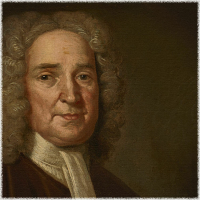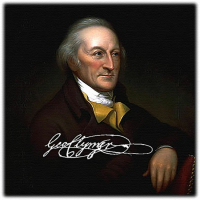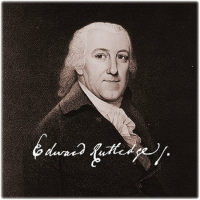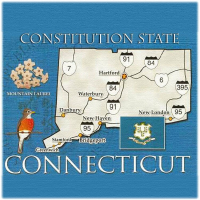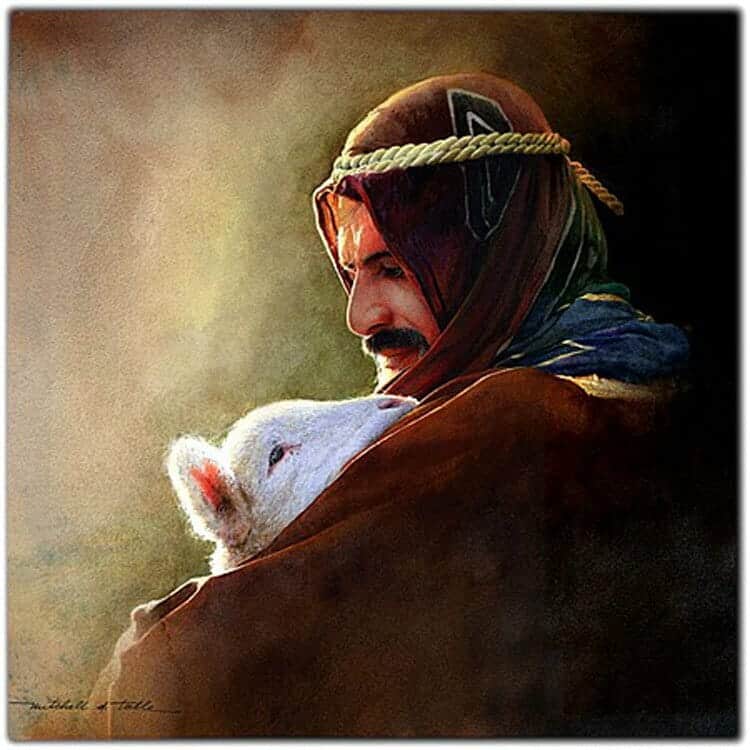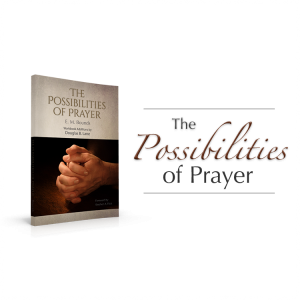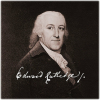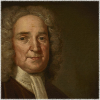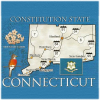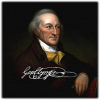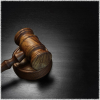George Washington and the Bible
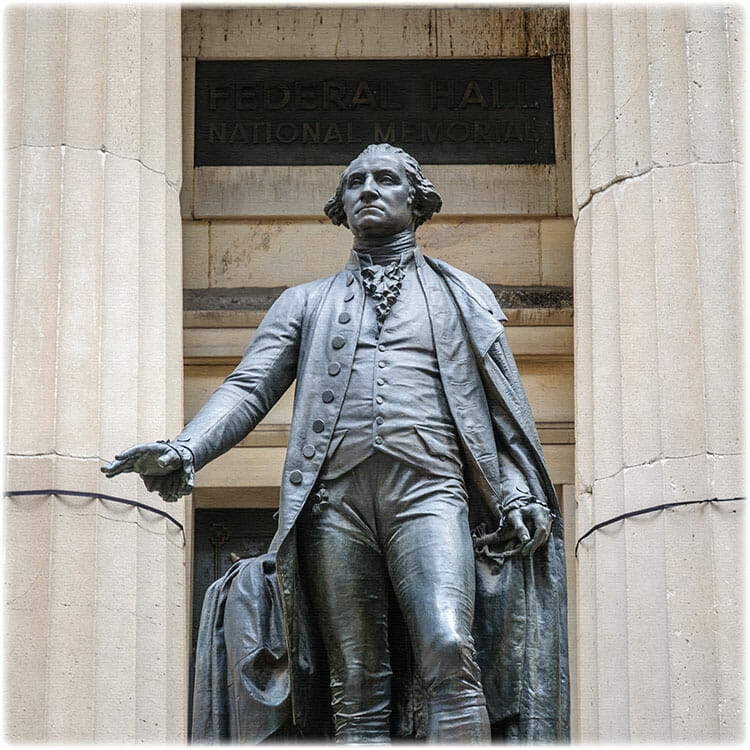
As a son of Virginia, George Washington was raised as an Anglican when Anglicanism was the state church of Virginia. Washington was raised in a Christian home,[1] received a Christian education,[2] was faithful in church attendance and worship of God,[3] respected the Sabbath principle by not working on Sunday,[4] was faithful in the habit of prayer,[5] financially supported his pastor,[6] signed the first Presidential Thanksgiving proclamation stating ". . . it is the duty of all nations to acknowledge the providence of Almighty God, to obey His will, to be grateful for His benefits . . .," and he began the tradition of taking the presidential oath of office with his right hand on the Bible—to mention only a few of the evidences of his Christian faith. Perhaps one of the best defenses of the Christian faith and convictions of George Washington is presented in the massive volume, George Washington's Sacred Fire, written by Peter Lillback and Jerry Newcombe.[7] Readers wishing more detailed information into Mr. Washington's Christian commitment will be greatly benefitted by careful consultation of this work. This present summary will not attempt to parrot this monumental work of Lillback and Newcombe. As previously stated, the evidence supporting the fact that America was established as a Christian nation is voluminous, and just as the author must content himself with the presentation of some of the most salient historical evidences to support this point, so he must demonstrate restraint with regard to the biographical evidence that might also be produced. George Washington and the Bible
The subject addressed in this article is discussed at greater length in America's Founding Fathers and the Bible. Christian Heritage Fellowship would be honored to work with individuals, businesses, churches, institutions, or organizations to help communicate the truth concerning the positive influence of the Christian faith by providing bulk pricing: Please contact us here... To purchase a limited quantity of this publication, please click: Purchase here...
Article Contents
One of the ways that George Washington reflected his Christian faith and convictions is witnessed during America's War of Independence. On June 15, 1775, the American Continental Congress appointed one of its own members, George Washington, as Commander of the Continental Army. From the very beginning of his tenure in this office, it was evident that spiritual and religious matters were not issues of indifference to the new Commander. After making preparations to assume command, he finally did so more than two weeks later, on July 3. The "General Orders" delivered on July 3 were very brief, but the General Orders for the following day were more extensive and began to convey Washington's expectations for the deportment of the American army. In the third paragraph of the General Orders, the new Commander's spiritual expectations were first expressed:
Head Quarters, Cambridge, July 4, 1775
. . .
The General most earnestly requires, and expects, a due observance of those articles of war, established for the Government of the army, which forbid profane cursing, swearing and drunkenness; And in like manner requires and expects, of all Officers, and Soldiers, not engaged on actual duty, a punctual attendance on divine Service, to implore the blessings of heaven upon the means used for our safety and defense.[8]
From the very beginning of his role as Commander of the Continental Army, Washington expected "all Officers, and Soldiers, not engaged on actual duty, a punctual attendance on divine Service, to implore the blessings of heaven upon the means used for our safety and defense." Not only did he advocate the Christian faith through the General Orders, but he also personally took an active role in leading worship. When a chaplain was not present to lead in "divine Service," General Washington personally read Scripture and prayed with his troops on Sundays.[9]
One of Washington's most strident affirmations of his Christian convictions and the role that the Bible had exercised upon America was made in a circular letter at the end of the Revolution. This letter recognized a culmination of biblical influence—which historically, originated with King James' permission to settle the English holdings in the New World.
Prior to the organization of the Continental Congress in 1774, the American colonies did not concern themselves with the Christian observances in the other colonies. That is because that prior to the rise of the federal government—beginning with the Continental Congress—the American Colonies governed themselves, with oversight from the King and English Parliament. All charters and governments of the thirteen English colonies were Christian in character, reflecting the sentiments of the First Virginia Charter of King James I, which was signed on April 10, 1606, establishing the first permanent English settlement in the New World:
We, greatly commending, and graciously accepting of, their desires for the furtherance of so noble a work, which may, by the Providence of Almighty God, hereafter tend to the glory of his Divine Majesty, in propagating of [the] Christian religion to such people, as yet live in darkness and miserable ignorance of the true knowledge and worship of God, and may in time bring the infidels and savages, living in those parts, to human civility, and to a settled and quiet government: Do, by these our letters patents, graciously accept of, and agree to, their humble and well-intended desires.[10]
The Christian sentiment of King James was reflected in all the charters and constitutions of the thirteen American colonies, and when the Declaration of Independence was signed on July 4, 1776, the new constitutions of the states that soon followed continued to reflect their Christian origin. Nearly all of the original thirteen states had government-sponsored or supported churches.[11]
Mindful that the organization of the Continental Congress meant that representatives from these various government-sponsored denominational states were convening for the sake of governmental allegiance, these representatives were careful not to unnecessarily offend other Christian representatives from other states, lest the attempt at a unified government should fail. One of the most deeply committed evangelicals of the Founding Fathers, John Jay was America's first Chief Justice of the Supreme Court and, who at twenty-nine, was the youngest representative to the First Continental Congress. Jay was fearful that appointing a chaplain to Congress would heighten denominational differences prohibiting representatives from working together, but his fears were ill founded.[12] Seeking to dispel the myth that America's Founding Fathers were secularists, one author astutely perceived that Jay was not advancing a secular agenda:
It would be a mistake to conclude from Jay's opposition to a chaplain in Congress that he was opposed to denominational religion. He was a consistent churchgoer and an opponent of Deism, particularly of the Thomas Paine variety.[13]
Anticipated denominational partisanship is the primary reason little mention was subsequently made of Christianity in America's most important national documents—Declaration of Independence, Articles of Confederation, Northwest Ordinance, and the United States Constitution, all of which make up America's "Organic Laws." However, this does not mean the representatives who ratified the four Organic Laws were in any stretch of the imagination "secular." Rather, they were respectful of fellow representatives who were of varying denominational and theological traditions. Because the individual states said a great deal about Christianity in their state laws and practices, it would have been difficult to find unanimity if the denominational and theological issues were insisted upon as the chief unifying influences. For this reason, religious matters were left to the individual states as reflected in the United States Constitution.
That General Washington was more than willing to be respectful of fellow Christians without divorcing himself from his Christian Anglican (or Episcopalian) tradition while exercising his official duties may be demonstrated from his writings. One particular occasion that demonstrates his belief that the Bible should be expected to influence matters of national government may be seen in a circular letter he penned near the end of his tenure as Commander of the American Revolutionary Army. On June 8, 1783, General Washington began to circulate a lengthy letter he had composed at his headquarters at Newburg, New York. Two months earlier, on April 11, 1783, word had reached Washington that a preliminary peace treaty had been signed between America and Great Britain to bring the American Revolution to a close. In his June 8 circular letter, he hoped to express his sentiments on some important issues, preparing America for a new phase of its life. Though copies of the letter were sent to the governors of the thirteen states, Washington intended that his sentiments should be more widely known beyond the governors themselves, saying he wished the governors would "communicate these sentiments to your Legislature at their next meeting, and that they may be considered as the legacy of one, who has ardently wished, on all occasions, to be useful to his Country."[14]
As he prepared to discuss the main points of his letter, he paused to praise the various influences that paved the way for America's optimistic future. But towering above all other influences that laid the "foundation" for America—the most important to General Washington—was "Revelation," or the Bible:
The foundation of our Empire [America] was not laid in the gloomy age of ignorance and superstition, but at an epoch when the rights of mankind were better understood and more clearly defined, than at any former period, the researches of the human mind, after social happiness, have been carried to a great extent, the treasures of knowledge, acquired by the labors of philosophers, sages and legislatures, through a long succession of years, are laid open for our use, and their collected wisdom may be happily applied in the establishment of our forms of government; the free cultivation of letters, the unbounded extension of Commerce, the progressive refinement of manners, the growing liberality of sentiment, and above all, the pure and benign light of Revelation [the Bible] , have had ameliorating influence on mankind and increased the blessings of society. At this auspicious period, the United States came into existence as a nation, and if their citizens should not be completely free and happy, the fault will be entirely their own.[15]
Given the fact that deists did not believe "revelation" could occur and the irreligious believe it is unnecessary, it is not possible to interpret Washington's use of the term "Revelation" in any other way than what he would have been taught it meant as an Anglican—that is the revelation of God as recorded in the Bible! While Washington recognized other influences upon the "foundation of our Empire," the most important influence was not of human origin—something reflected in a study of the sources that most affected the Founding Fathers. In 1983, Charles S. Hyneman and Donald S. Lutz published the result of years of study in their two-volume work, American Political Writing During the Founding Era, 1760-1805.[16] After reviewing nearly 15,000 documents, the two Professors concluded that, though many other sources of authority were cited in the writings of America's Founding Fathers, the single most quoted source of authority was the Bible. Though many of the Founding Fathers possessed classical educations and could read the classics of the Greco-Roman world in the original languages of Greek and Latin, the classical philosophers did not hold the greatest influence over their thinking. The above quote from General Washington recognizes other influences that gave rise to America, but—in his estimation—the single greatest influence for good upon the nation was "the pure and benign light of Revelation"—the Bible!
As he concluded his circular letter, the Commander of America's army continued to express his Christian faith in a form similar to that which may be attributed to any faithful minister of the Gospel:
I now make it my earnest prayer, that God would have you, and the state over which you preside, in his holy protection, that he would incline the hearts of the citizens to cultivate a spirit of subordination and obedience to government, to entertain a brotherly affection and love for one another, for their fellow citizens of the United States at large, and particularly for their brethren who have served in the field, and finally, that he would most graciously be pleased to dispose us all, to do justice, to love mercy, and to demean ourselves with that charity, humility and pacific [or peaceable] temper of mind, which were the characteristics of the Divine Author of our blessed [Christian] religion, and without an humble imitation of whose example in these things, we can never hope to be a happy nation.[17]
A benediction completely unsuited to a secularist, atheist, agnostic, deist, or any other form of irreligion!
Fidelity in Private Spiritual Habits
Biographical evidence suggests George Washington was an advocate of Christianity, not only in public, but in his private life as well. Many years after his death, an important spiritual habit of Washington was recounted and added to what was already known concerning his Christian devotional habits. From all indication, the account recorded below reflects a habit that characterized Mr. Washington's entire life—though it likely varied to some degree because of the circumstances of life.[18] In a letter written on January 10, 1859, Nathaniel Hewit recalled an experience that occurred nearly thirty years earlier that recounted Washington's faithful Christian devotional habits.
In the month of November, 1829, I was in Fredericksburg, Va., and in the family of the Rev. Mr. Wilson, pastor of the Presbyterian church in that place. He occupied the house in which the mother of Washington lived and died. Mr. Wilson informed me that a nephew of Washington, Captain Lewis, who had been his clerk, and had the charge of his books and papers, and was daily in his library until his decease, related to him the following occurrence. It was the custom of Washington to retire to his library every evening precisely at nine o'clock, and, although he had visitors, he invariably left at that hour, and did not return. He remained alone in his library till ten o'clock, and passed into his bedchamber by an inner door. Captain Lewis had long wondered how he spent that hour, knowing that he wrote nothing, and that the books and papers were as he himself left them the preceding day. During a violent storm of wind and rain, and when there were no visitors, he crept in his stocking-feet to the door, and through the key-hole he beheld him on his knees, with a large book open before him, which he had no doubt was a Bible—a large one being constantly in the room.[19]
This observation of his devotional life was confirmed by Washington's adopted daughter. Early in the twentieth century, America and Her Founding Fathers came under the attack of secular socialistic forces that had swept through Europe and was advancing to other venues around the globe. The person and character of George Washington was not spared from this withering attack of irreligious secularists, which continues now into the early portion of the twenty-first century in the form of historical revisionism. Attempting to renounce or recast the character of Washington and other Founding Fathers, these secularists completely reject the most important biographical and historical records in favor of any information—no matter how tenuous—that will debunk well-established truth that often recounts the Christian influence that birthed America. The fact is that the Founding Fathers bequeathed much biographical information concerning their Christian spiritual commitments.
When George Washington married the young widow, Martha Custis, two young children (John and Martha, also called Patsy) were brought into his home from Martha's previous marriage. Upon maturity, both John and Martha Patsy married and had children of their own, but tragedy struck both children, and by 1781, both John and Martha Patsy were dead.
John left four young children behind, ranging in age from infancy to six years. Occupied with the duties of the Commander of the American revolutionary army, George Washington unsuccessfully attempted to convince Martha's brother to raise the children. Unable to raise all four children, John's widow allowed George and Martha to adopt the two younger children—Nelly Parke Custis and George Washington Parke Custis.
Nelly lived with her grandparents as their adopted daughter for twenty years, nearly from her birth in 1779 to 1799, the year of her marriage, and referred to George and Martha as her "beloved parents." It is not surprising, then, for Washington's biographer to write to Nelly, asking her for biographical insight concerning Mr. Washington's faith. On February 26, 1833, she responded to the enquiry of biographer Jared Sparks, a portion of which reflected specifically upon Washington's personal devotional habits:
It was his custom to retire to his library at nine or ten o'clock, where he remained an hour before he went to his chamber. He always rose before the sun, and remained in his library until called to breakfast. I never witnessed his private devotions. I never inquired about them. I should have thought it the greatest heresy to doubt his firm belief in Christianity. His life, his writings, prove that he was a Christian. He was not one of those, who act or pray, 'that they may be seen of men.' He communed with his God in secret.
My mother resided two years at Mount Vernon, after her marriage with John Parke Custis, the only son of Mrs. Washington. I have heard her say, that General Washington always received the sacrament with my grandmother before the revolution. When my aunt, Miss Custis, died suddenly at Mount Vernon, before they could realize the event, he knelt by her and prayed most fervently, most affectingly, for her recovery. Of this I was assured by Judge Washington's mother, and other witnesses.[20]
In the same letter, Nelly also recounted Martha Washington's devotional fidelity and the perceived influence that this spiritual state had upon the couple:
She never omitted her private devotions, or her public duties; and she and her husband were so perfectly united and happy, that he must have been a Christian. She had no doubts, no fears for him. After forty years of devoted affection and uninterrupted happiness, she resigned him without a murmur into the arms of his Saviour and his God, with the assured hope of his eternal felicity.[21]
. In some communities, these small libraries were the largest literary repositories in the area. Among some of the first books to be printed was a biography of George Washington, written by Anna C. Reed. In it, the personal, moral, and spiritual life of the Father of America were related to young readers, challenging them to follow in the footsteps of this great American. Anna Reed related one of the most vivid stories of General Washington's spiritual life that occurred when the General and his troops were in winter quarters in Valley Forge, which extended from December 19, 1777 to June 19, 1778. Various artists have attempted to capture this scene with their brushes. After describing in some detail the hardships under which the American troops lived at Valley Forge, Reed proceeded to relate the following anecdote of General Washington's prayer life. She began with a quote from a letter the General was writing to Patrick Henry concerning the hardships of the soldiers. General Washington was surprised that the soldiers did not lament the conditions at Valley Forge. Reed wrote,
In describing their condition in the hut-camp, he said [in his letter to Patrick Henry, then governor of Virginia], “For some days there has been little less than a famine in the camp; but, naked and starving as they are, I cannot enough admire the incomparable fidelity of the soldiers, that they have not before this time been excited to a general mutiny or dispersion.”
The inhabitants of the surrounding country, knowing this sad state of the army, were very uneasy; one of them left his home, one day, and as he was passing thoughtfully the edge of a wood near the hut-camp, he heard low sounds of a voice. He stopped to listen, and looking between the trunks of the large trees he saw Gen. Washington engaged in prayer He passed quietly on, that he might not disturb him; and, on returning home, told this family he knew the Americans would succeed, for their leader did not trust in his own strength, but sought aid from the hearer of prayer, who promised in his word, “Call upon me in the day of trouble; I will deliver thee, and thou shalt glorify me.” A female, who lived at the Valley Forge when the army was encamped there, told a friend who visited her soon after they left it, that she had discovered that it was the habit of Washington to retire to a short distance from the camp to worship God in prayer. Many, who in “the day of prosperity” have forgotten or neglected to worship their Creator, will earnestly call upon him in “ the day of trouble,” when they feel that His power only can deliver them; but it was not thus with Washington; it was his constant custom as one of his nephews has thus related: “One morning, at daybreak, an officer came to the general’s quarters with dispatches. As such communications usually passed through my hands, I took the papers from the messenger and directed my steps towards the general’s room. Walking along the passage which led to his door, I heard a voice within. I paused, and distinctly recognized the voice of the general. Listening for a moment, when all was silent around, I found that he was earnestly engaged in prayer. I knew this to be his habit, and therefore retired, with the papers in my hand, till such time as I supposed he had finished the exercise, when I returned, knocked at his door, and was admitted.” Thus, in obedience to Him whom he called “ the Divine Author of our blessed religion,” Washington, in the retirement of his chamber, prayed to his “Father who seeth in secret,” and truly his “Father, who seeth in secret,” did “ reward him openly.”[22]
While much more might be presented to demonstrate the importance of the Christian religion and the role of the Bible in the life of George Washington, perhaps the evidence of his faith at the moment of death is most compelling. There is no evidence that George Washington was ashamed of his Christian faith; rather, just the opposite was true. Throughout his life he conducted himself as a Christian—even the scene of his deathbed reflected the Christian commitment that characterized his life. On December 14, 1799—at the age of sixty-eight—President Washington passed from this world, the scene of which was captured by one of his biographers—the place of Scripture and its teachings accompanying him to the "valley of the shadow of death":
His death was worthy of his Christian faith and character. "I die hard," said he; "but I am not afraid to die. I should have been glad, had it pleased God, to die a little easier; but I doubt not it is for my good. ’Tis well! Father of mercies, take me to thyself." On his dying bed lay an open Bible, the book of God, which he had read in the family circle and in his private devotions, and in the light of its heavenly truths his great soul passed, doubtless, into the light and immortality of heaven.[23]
In responding to those who doubted George Washington's Christian commitment, one of his most astute biographers, answered their doubt with a rhetorical question, "… is it credible, that, in a matter of the highest and most serious importance [Washington's faith], he should practice through a long series of years, a deliberate deception upon his friends and the public? It is neither credible nor possible."[24] In short, Washington died as he had sought to live—in the embrace of the Christian religion.
Many are surprised at the attempt to topple Confederate statues throughout the South and other areas of the nation. But, in fact, the effort to topple America's Founding Fathers and the Christian principles they advocated started in the early twentieth century; the present wave of vandalism against America's history began more than a hundred years ago. Throughout the twentieth century, the facts regarding America and its Christian origin were toppled in textbooks, state and national parks, museums, and other institutions throughout America.
The overwhelming number of Founding Fathers were deeply committed Christians who established America upon a firm Christian moral and legal foundation. Both in their public and private papers, the Founding Fathers clearly demonstrated their Christian convictions in principle and practice. What Americans should realize is that no irreligious or secular nation has ever been able to produce a people or nation as prosperous or as culturally advanced as the United States. Because of Founding Fathers like George Washington, America has been blessed to be an exceptional nation.
America deserves to know its true heritage.
Please contribute today!
"Anchor Elements" are concepts, events, individuals, terms, or other important components that are featured in this article and which act as reference points for use in other articles throughout our site.
No index entries found.
[1] Peter Lillback, George Washington’s Sacred Fire (Bryn Mawr Pa.: Providence Forum Press, 2006), 95ff.
[2] Lillback, Washington’s Sacred Fire, 118.
[3] Morris, Civil Institutions of the United States, 498.
[4] Morris, Civil Institutions of the United States, 499 .
[5] Morris, Civil Institutions of the United States, 500f .
[6] Lillback, Washington’s Sacred Fire, 65.
[7] Lillback, Washington’s Sacred Fire . Also see, Edward McGuire, The Religious Opinions and Character of Washington (New York: Harper and Brothers, 1836) .
[8] "The American Revolution, 1763-1783: Creating a Continental Army," The Library of Congress (http://www.loc.gov/teachers/classroommaterials/presentationsandactivities/presentations/timeline/amrev/contarmy/orderone.html, November 12, 2015).
[9] Morris, Civil Institutions of the United States, 500f .
[10] "The First Charter of Virginia; April 10, 1606," Yale Law School, Lillian Goldman Law Library, accessed July 6, 2015. http://avalon.law.yale.edu/17th_century/va01.asp. Orthography updated in quote.
[11] Eleven of the thirteen colonies/states originally had government sponsored Christian denominations. See Charles B. Galloway, Christianity and the American Commonwealth: The Influence of Christianity in Making This Nation, Reprint ed. (Powder Springs, Georgia: American Vision, 2005), 140. Compare, Thomas Jefferson, Notes on the State of Virginia, A New Edition ed. (Richmond, VA: J. W. Randolph, 1853), 171-173.
[12] A note in the Journals of Congress explains those involved in the discussion concerning opening Congress with prayer: "'After settling the mode of voting, which is by giving each Colony an equal voice, it was agreed to open the business with prayer. As many of our warmest friends are members of the Church of England, [I] thought it prudent, as well on that as on some other accounts, to move that the service should be performed by a clergyman of that denomination' (Samuel Adams to J. Warren, 9 September, 1774). John Adams says it was Cushing who made the motion that business be opened with prayer, and John Jay and Rutledge opposed it on the ground of a diversity in religious sentiments. That Samuel Adams asserted he was no bigot, and could hear a prayer from any gentleman of piety and virtue, who was at the same time a friend to his country; and nominated Duch. . . ." Journals of the Continental Congress, 1774-1789, 34 vols. (Washington, D.C.: Government Printing Office, 1904), 1:26.
[13] Norman Cousins, "In God We Trust"; the Religious Beliefs and Ideas of the American Founding Fathers, 1st ed. (New York: Harper, 1958), 360.
[14] George Washington, "George Washington to Meshech Weare, Et Al, June 8, 1783, Circular Letter of Farewell to Army," Library of Congress, accessed January 2, 2016. http://memory.loc.gov/cgi-bin/query/r?ammem/mgw:@field%28DOCID+@lit%28gw260534%29%29.
[15] Washington,
[16] Charles S. Hyneman and Donald S. Lutz, American Political Writing During the Founding Era, 1760-1805, 2 vols. (Indianapolis: Liberty Press, 1983).
[17] Washington,
[18] One of the most widely circulated biographies of George Washington was a small volume published by the American Sunday School Union. This work recounted what was reported concerning the prayer or devotional life of Washington in the war years by a variety of sources. Anna C. Reed, Life of Washington (n.p.: American Sunday-School Union, 1824; reprint, Green Forest: AR, Attic Books, 2010), 117-19.
[19] Morris, Civil Institutions of the United States, 501-502.
[20] Jared Sparks, The Writings of George Washington; Being His Correspondence, Addresses, Messages, and Other Papers, Official and Private, Selected and Published from the Original Manuscripts; with a Life of the Author, Notes, and Illustrations, 12 vols. (Boston: Little, Brown, 1858), 12:406.
[21] Sparks, 12:407.
[22] Anna C. Reed, Life of Washington (n.p.: American Sunday-School Union, 1824; reprint, Green Forest: AR, Attic Books, 2010), 117-19.
[23] Morris, Civil Institutions of the United States, 520.
[24] Sparks, 12:405.

